Stay updated with the latest beauty tips, trends, and news from our salon experts. Our blog is your go-to source for all things beauty.
Food is one of the most important things in life – yet few of us understand exactly how it sustains us.
We know it goes in one end and comes out very differently at the other, but what goes on in between is a mystery to many. And food scientist Dr Chris van Tulleken hopes to help change that a little.
The TV science presenter – who’s fronted shows including BBC Two’s recent Irresistible: Why We Can’t Stop Eating, and is the author of the best-selling book Ultra-Processed People – will reveal how what we eat can have a massive effect on both our bodies and our brains through The Truth About Food programme, as part of BBC Four’s Royal Institution Christmas Lectures for children.
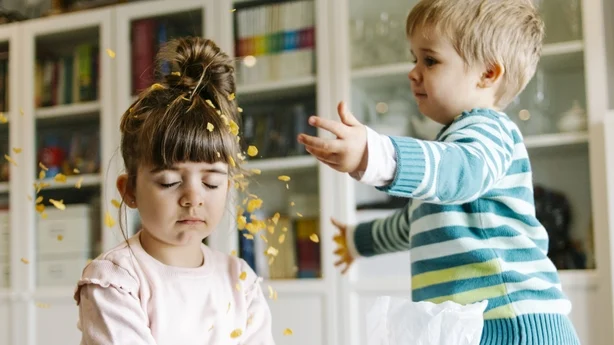
And he’ll bring science to life through the lectures’ trademark demos and self-experimentation – including taking young viewers on a journey to the centre of his gut by swallowing a camera-pill to unpack every step of the digestion process.
"We’re going to use cameras to get views inside the human body, and do lots of big experiments with kids about how the gut works and how your body breaks down and destroys food," says van Tulleken.
"And for some demonstrations, we shrink children down to the size of atoms and show exactly what’s happening inside cells and inside engines at an atomic level."
The presenter, who’s also a practising NHS infectious diseases doctor at the Hospital for Tropical Diseases in London, stresses that the aim of his lectures isn’t particularly to get children to change what they eat.
"That’s not my ambition," he insists. "We really aren’t going to give anyone any advice – what we want is to give them information. Even if a child wants to eat different food, they don’t have a lot of control over it – they’re fed by the grown-ups who look after them. So we’re treading a very careful line here.
"Life is about turning food into movements and respiration and all the other things life does, and I think kids are profoundly curious about it."
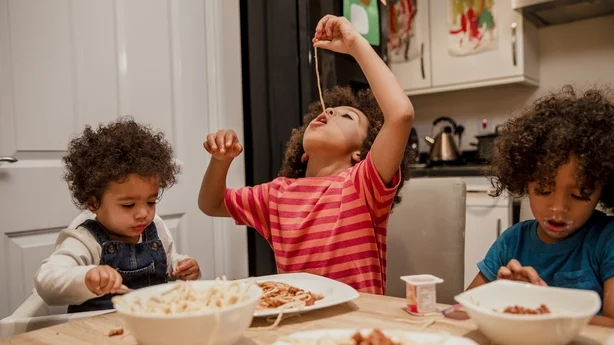
But their curiosity isn’t the only reason van Tulleken, who has three children aged seven, four and nine months, wants youngsters to understand more about how food affects their body. He stresses: "Children in this country have been made very sick by our food system – a quarter of them live with diet-related disease, which is an obscenity.
"So children have a right to knowledge and good health, and part of these lectures is about helping them understand how the food they put in their bodies affects them."
He explains that while children should know that when they don’t eat fibre, for example, they may end up constipated, he’s not going to tell them what they should and shouldn’t be eating.
"We’re not going to say you have to eat five portions of fruit and veg a day, and we want to be very careful warning about ultra-processed food (UPF). But we’re going to look at the science of it, and the proven effects on the body," he explains.
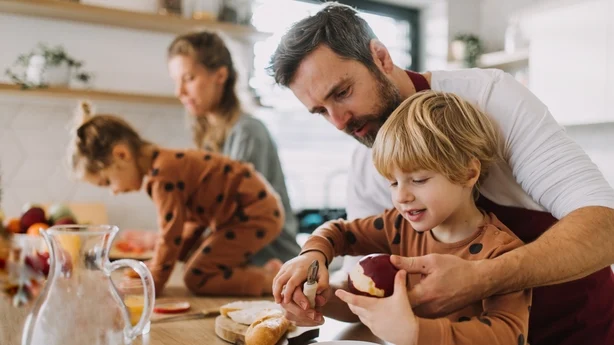
He insists that he will "never, ever give advice – I refuse to do it," because he’s a food scientist, not a qualified nutritionist or dietitian, and points out: "If you give advice, it’s really hard for people to follow."
He says it’s hard for parents to get rid of all UPFs in their children’s diet, and admits that even his children eat wholegrain UPF bread in their packed lunches, explaining: "Unless you make the bread yourself, or live near a bakery that sells real bread – which is up to 10 times more expensive than supermarket bread – it’s very hard to get rid of the final bit of UPF. So, no-one should panic – no-one’s saying you need to quit it entirely."
His children don’t have soft drinks with their packed lunch, and drink milk or water. "That’s probably the most agreed on bit of health advice there is, that children should drink milk or water, not soft drinks," he says.
"If your kids love soft drinks and you want to reduce them, you’re in a very difficult spot, because the drinks, of course, are engineered very cleverly so kids love them and want to drink lots of them. But kids, if they’re thirsty, will drink water and milk.
"Soft drinks aren’t poisonous, but you know they’re not great either, and we think there’s some evidence they train the palate to really love sweetness, even the sugar-free ones."
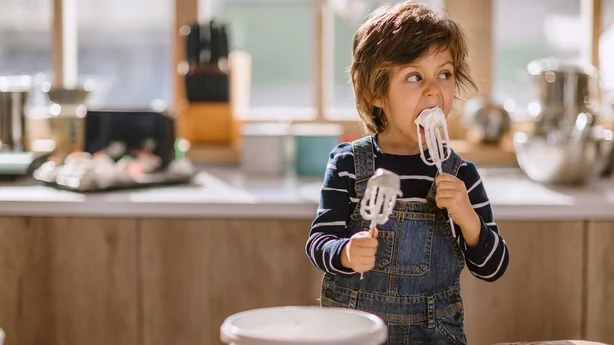
He says consuming zero-calorie sweeteners may affect children’s preference for sweet things, so they may prefer sugary foods, and "sugar in a child’s diet is not great. It rots teeth and it causes other problems."
But he stresses that parents using sugar when they cook at home isn’t a problem. "The difficulty is the sugars in all the industrially produced foods. There are such high levels that you end up eating a huge amount," he says.
And what about portion sizes?
"Here’s a thing that amazes me," he says. "A small bottle of fizzy pop is two servings. So you should drink one portion, then put the lid on and have the rest later.
"I don’t know anyone in the history of drinking fizzy pop that has ever put the lid back on and not finished it. The same is true with packets of crisps."
He says food is engineered so we’ll eat too much of it, and it’s good for children to look at food packaging and recommended portion sizes, and ask themselves if they’re satisfied by a portion. "And the answer is typically no," he points out.
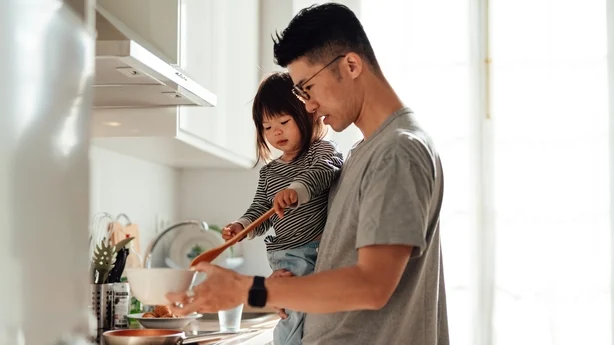
So are parents giving kids portions that are too large as well?
Van Tulleken says: "It’s not parents serving their kids too much food, it’s that we’re all eating food that’s engineered to bypass our body’s ability to say I’m full."
He explains there are "lots and lots of ways" of engineering foods so people consume a lot, explaining: "The properties of food that we think lead to weight gain are softness, energy density, high quantities and perfect ratios of fat, salt and sugar, flavouring, colouring and marketing and branding. All of that combines to mean that whether it’s crisps or ready meals or fast food, all of it you will eat to excess, and it won’t make you feel good."
But what can parents do about it?
"If a parent said to me, how can I read a pack and tell if something’s healthy or unhealthy – you kind of can’t. It’s very hard," says van Tulleken ruefully.
But it is, of course, every parent’s choice what food they give to their kids, and he stresses: "I’m very wary of being another man with privilege telling the nation how to eat.
"I personally find it very, very hard feeding my children healthily – it’s a challenge. It takes time, money, energy and effort. And if people are struggling, the main thing I would say to them is that’s normal, and it’s very hard."
The Royal Institution Christmas Lectures are on BBC Four at 9pm on December 29, 30 and 31.